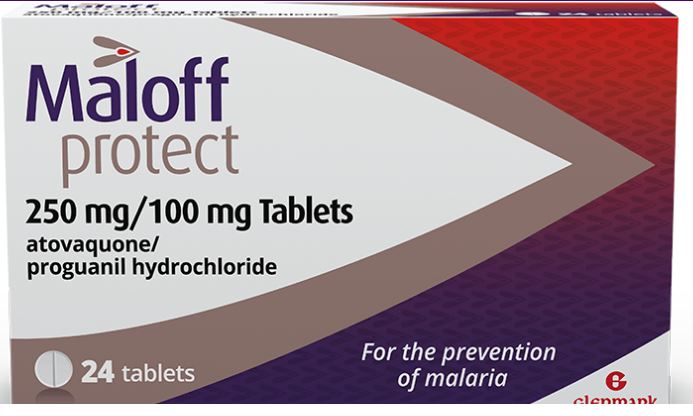- Home
- Book Now
- Prices
- Bloods
-
Vaccinations
- Chickenpox Vaccination
- Cholera Vaccination
- Flu
- Hepatitis A & Typhoid Combined Vaccination
- Hepatitis A & B Combined Vaccination
- Diphtheria/Tetanus/Polio Combined
- Hepatitis A
- Hepatitis B
- HPV Vaccination
- Japanese Encephalitis
- MMR (Mumps, Measles and Rubella)
- Malaria
- Meningococcal meningitis
- Rabies
- Shingles
- Tick-borne Encephalitis
- Typhoid
- Yellow Fever
- Yellow fever replacement certificate
- Locations
- Reviews
- Contact Us
- COVID-19
- Home
- Book Now
- Prices
- Bloods
-
Vaccinations
- Chickenpox Vaccination
- Cholera Vaccination
- Flu
- Hepatitis A & Typhoid Combined Vaccination
- Hepatitis A & B Combined Vaccination
- Diphtheria/Tetanus/Polio Combined
- Hepatitis A
- Hepatitis B
- HPV Vaccination
- Japanese Encephalitis
- MMR (Mumps, Measles and Rubella)
- Malaria
- Meningococcal meningitis
- Rabies
- Shingles
- Tick-borne Encephalitis
- Typhoid
- Yellow Fever
- Yellow fever replacement certificate
- Locations
- Reviews
- Contact Us
- COVID-19
Maloff Protect: Now available for purchase without a prescriptionMaloff Protect works by killing malaria parasites in your body. If taken before you are bitten, it can prevent you from becoming infected.
Until now, atovaquone/proguanil was only available with a doctor’s prescription. With Maloff Protect, you can get the same protection direct from us, making your travel preparations even simpler. Preventing malaria is just one of the things to think about before you travel. There might also be some recommended vaccinations. If you haven't already done so, make an appointment to find out what other precautions you should take. Call us now on 0161 870 6546 or if you prefer buy online here: https://www.clearchemist.co.uk/maloff-protect-24-tablets.html?___SID=U
0 Comments
Announcement from the Public Health service in England
Shortage of hepatitis A vaccines Hepatitis A vaccine continues to be in short supply in the United Kingdom (UK) and globally; until normal vaccine supply resumes, some products may not be available or may be reserved for special risk groups However for standard travel requirements, this vaccination will not be available. Shortage of hepatitis B vaccines There is at present, a global shortage of hepatitis B vaccine which is currently impacting severely on the UK supply. The situation is particularly critical during August but limitations on supply are likely to continue until early 2018. PHE and Department of Health (DH) have been working with both vaccine manufacturers to institute ordering restrictions according to customer type. As a consequence, NHS hospital trusts will get the highest allocation, and some providers, including community pharmacy and general practice, will not be able to order any adult hepatitis B vaccine stock until further notice. POST EXPOSURE VACCINATION If you have been subject to an assault or a needle-stick injury and require urgent post-exposure Hepatitis B vaccination, please visit either your GP or an urgent care/Accident & Emergency department at an NHS trust for a full assessment. The situation is under constant review, to ensure that the available supply is able to match clinical need for the rest of the year. PHE has also developed patient and public facing materials which are published alongside this guidance which can be found by visiting: https://www.gov.uk/government/news/current-global-shortage-of-hepatitis-b-vaccine Advice for travellers who cannot obtain these vaccinations and how to stay safe whilst abroad, please visit: www.fitfortravel.nhs.uk and search for the vaccination via the ‘A-Z Index’ list. Mulltiple countries are currently experiencing outbreaks of Zika virus infection, particularly countries in South and Central America and the Caribbean. Zika virus is
transmitted primarily by Aedes aegypti mosquitoes, which are not present in the UK; almost all cases will be associated with transmission by mosquito bites in countries with active Zika virus transmission. Most people infected with Zika virus will have no symptoms, or will experience a mild, short-lived illness that resolves spontaneously, following an incubation period of up to 14 days. However, some countries with active Zika virus transmission, particularly Brazil, have reported an increase in the number of babies being born with microcephaly and other congenital malformations, while Zika virus transmission is also occurring. It is not yet proven that Zika virus infection of pregnant women causes microcephaly and other congenital defects, but the scientific evidence is sufficient to act on a precautionary basis and there is enough concern about the association between Zika virus infection and microcephaly for the World Health Organization (WHO) to have declared a Public Health Emergency of International Concern. Additionally, Guillain- Barré syndrome and other neurological and autoimmune syndromes are being reported in areas where Zika outbreaks have occurred although this appears to be considerably rarer. (Travel Advice for prganant women - gov.uk) Pregnant women and Zika virus infection Efforts are focussed on trying to prevent Zika virus infections in pregnant women or in women who are planning pregnancy. Such women should have pre-departure travel advice that includes considering avoiding non-essential travel to countries with active transmission until after pregnancy is concluded, and advice on measures that can be taken to limit infection risk when travel is unavoidable. A small number of cases of male-to-female sexual transmission of Zika virus have been reported, and advice about preventing sexual transmission is also available. Other groups and Zika virus infection Other travellers to, or other people arriving from countries with active Zika transmission may present with symptoms suggestive of Zika virus infection, or have concerns about Zika virus risks associated with travel. . Advice has been produced for members of the public. I reiterate that the risk to the UK population is very low, and that our efforts should be focused on preventing Zika virus infection in pregnant women or women planning to become pregnant, associated with travel to countries with active Zika virus transmission. Additionally, women who may have been exposed to Zika virus and who are pregnant or who are planning pregnancy require appropriate assessment and advice - contact your GP if you are concerned in any way. Please call us on 0161 870 6546 for further guidance or click here to read the NHS overview. |
AuthorRishi Bhatia MRPharmS BSc(Hons) - Super-Intendent Pharmacist Archives
November 2017
Categories |
|
Vertical Divider
Useful Links |
Vertical Divider
Areas We Cover including but not limited to:
Alderley Edge, Bramhall, Bredbury, Cheadle, Cheadle Hulme, Chelford, Chorlton, Congleton, Cranage, Disley, Goostrey, Hale, Hale Barns, Hollins Green, Holmes Chapel, Knutsford, Lach Dennis, Lostock Green, Macclesfield, Marple, Middlewich, Over Peover, Poynton, Prestbury, Romiley, Styal, Wilmslow, Chorley, Merseyside, Formby, Southport, Timperley. |
Registered and regulated by the NHS and General Pharmaceutical Society (GPHC)
Cheshire Travel Clinic is part of Scorah Chemist which is owned by RB Healthcare Ltd.
Company No 06223421
Scorah Chemists is registered with the GPHC - Reg no 1029774 (click here to check)
The Superintendent Pharmacist is Mr Rishi Bhatia - Reg no 2050450. (click here to check)
GPHC Number 1029774
Company No 06223421
Scorah Chemists is registered with the GPHC - Reg no 1029774 (click here to check)
The Superintendent Pharmacist is Mr Rishi Bhatia - Reg no 2050450. (click here to check)
GPHC Number 1029774


 RSS Feed
RSS Feed
